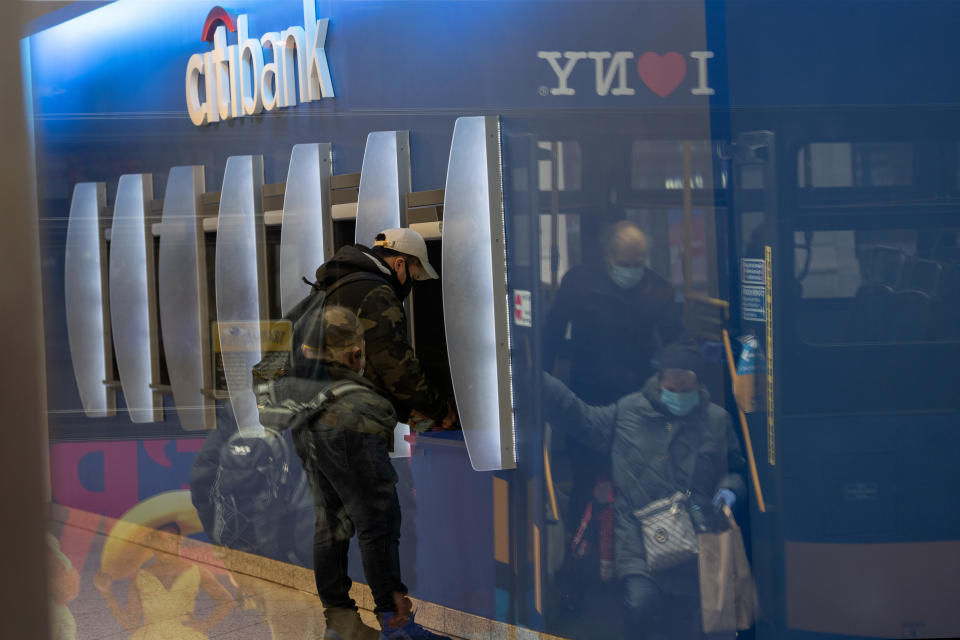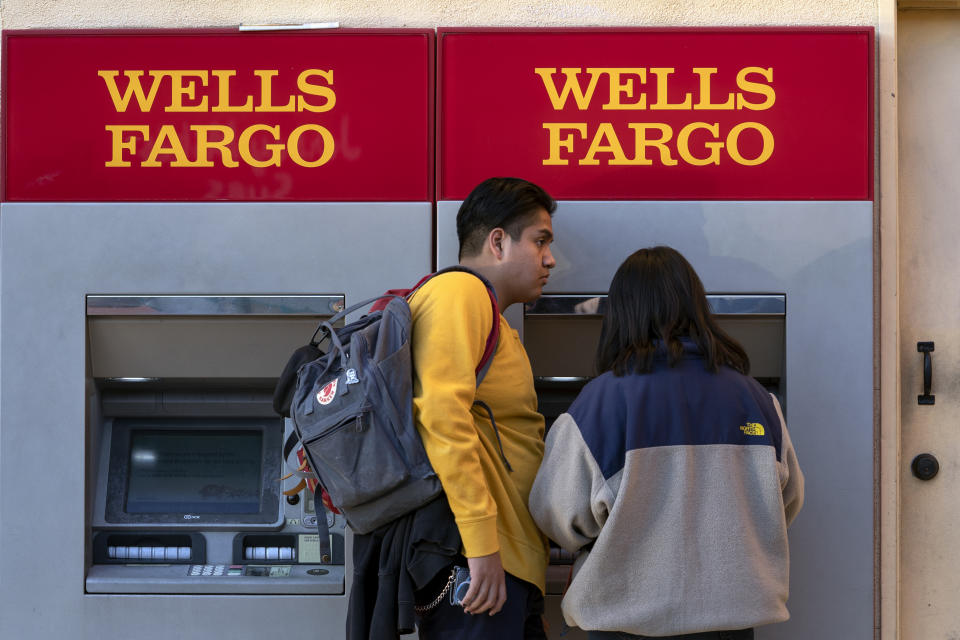Survey: Americans rack up more credit card debt amid pandemic
As job losses mount to unprecedented levels, many Americans are digging themselves deeper into credit card debt as they try to mitigate financial troubles from the COVID-19 pandemic.
Nearly half of U.S. adults are carrying debt on their credit cards, up from a month ago, while 1 in 4 of those already in debt have piled on more because of the coronavirus crisis, according to a new survey of 1,230 people from CreditCards.com.
“It’s more like a crisis kind of scenario,” said CreditCards.com’s industry analyst Ted Rossman. “We see 30 million people filing new jobless claims, there’s a lot of distress of people just trying to get by.”
Read more: Coronavirus: What it means if your lender cuts your credit card limit
Overall, the number of people with credit card debt has increased to 47% from 43% since early March, meaning more people who previously had no credit debt are now in the red.
Millennials, currently between 24 and 39, have been the hardest with 1 in 3 going into more debt due to the pandemic, compared with 1 in 5 Gen Xers and 1 in 6 baby boomers.

Not many are asking for relief
Major banks and lenders have been offering hardship programs to help Americans weather this financial storm, but not many cardholders in debt are taking advantage of it. Only 7% have asked for help, according to the survey.
Rossman said the programs are very generous when it comes to letting people skip a payment or two or lowering their interest rate. But the number of Americans doing so “feels really low,” he said.
Read more: What banks, lenders, utilities and more are doing to help customers financially
“In more normal times, I’d say get a balance transfer card, get a personal loan. Now this doesn’t apply,” Rossman said. “Now you need to hunker down, ask the issuer for a break.”
While millennials are at least twice as likely to ask for a break compared with Gen X or baby boomers, only 1 in 10 are taking advantage of the hardship programs, according to the survey.
Less credit card application and tightening standards
While Americans are accruing more debt on existing credit cards, fewer have been applying for new cards.
Since the start of the pandemic, credit report inquiries for new credit card applications declined by 40%, according to a recent report from the Consumer Financial Protection Bureau.

At the same time, more Americans are seeing their credit limits cut and finding it difficult to open a new credit card. Banks like Discover Financial Services have cut down on issuing cards to new customers, according to a regulatory filing by the company from April 22.
“We're seeing some existing cardholders getting limits cut or cards canceled,” Rossman said. “Now, it's really hard to get a new credit card because of lending standards.”
Buffett on credit card debt
The Oracle of Omaha recently weighed in on credit card debt during Berkshire Hathaway’s annual shareholder meeting.
“I think people should avoid using credit cards as a piggy bank to be raided,” said Warren Buffett, the chairman and CEO of Berkshire Hathaway (BRK-A, BRK-B).
He recalled when a woman asked him what she should do with the money she recently came into. Instead of giving investing advice, he recommended that she pay off her credit card debt first.
Read more: Free credit reports amid coronavirus: Here’s why that's important
“If I owed any money at 18%, the first thing I’d do with any money I had would be to pay it off,” Buffett said. “I don’t know how to make 18%.”
Paying off the debt will be “better than any investment idea that I’ve got,” Buffet said.
“It just doesn’t make sense — you can’t go through life on money at those rates and be better off,” Buffett said. “I encourage everybody…that the first thing they do...pay that off.”
Aarthi Swaminathan contributed reporting.
Denitsa is a writer for Yahoo Finance and Cashay, a new personal finance website. Follow her on Twitter @denitsa_tsekova.
Read more:
'Replaceable': Household help are left unpaid during coronavirus pandemic
'Struggling so severely': Coronavirus exposes the gulf between the haves and have-nots
Read more personal finance information, news, and tips on Cashay
Follow Yahoo Finance on Twitter, Facebook, Instagram, Flipboard, SmartNews, LinkedIn, YouTube, and Reddit.

 money
money 
